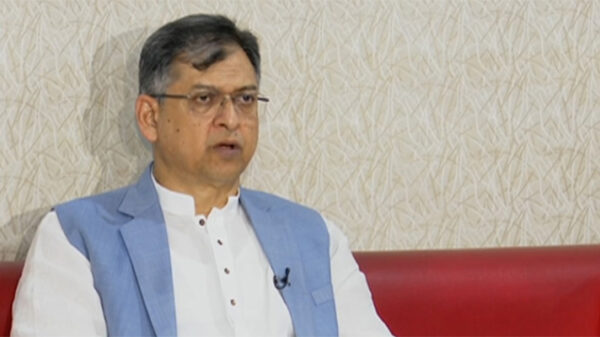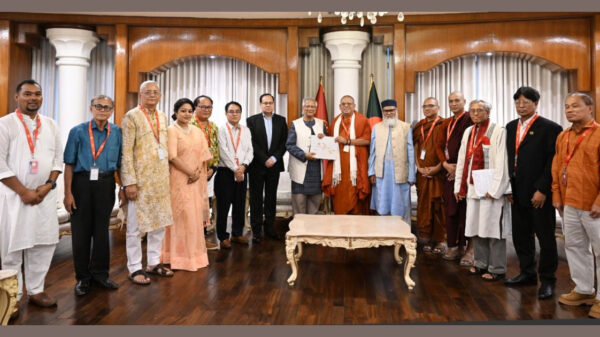A Correspondent:
Bangladesh’s bilateral trade with Japan has slowly increased over the decades. The country is the first choice of Bangladeshi exporters among non-traditional export destinations, especially for apparel exporters.
Ten years ago in 2013, the value of bilateral trade among Japan and Bangladesh was worth $1.77 billion, where Bangladesh exported products worth $895.43 million and imported products worth $878.07 million, according to Jetro data.
In 2018, the bilateral trade reached $3.01 billion where Bangladesh exported $1.44 billion and imported products worth $1.57 billion.
Last year the bilateral trade value touched $4.31 billion where Bangladesh exported products worth $1.71 billion and imported products worth $2.6 billion.
However, it is noticeable that the trade deficits between Japan and Bangladesh have been on rise since 2020, the year when Covid-19 struck.
Bangladesh primarily exports RMG, home textile, leather and leather goods to Japan and imports ships, boats, steel, iron, and vehicles.
Although the trade deficit is increasing, Bangladesh is still in an advantageous position in receiving Japanese investment as the recent establishment of the Japanese Economic Zone in Narayanganj where both foreign and local companies have contracts to set up factories.
Moreover, major Japanese apparel companies like Adastria, Aoyama Trading, and suppliers of Uniqlo are moving some of their production bases to Vietnam, Cambodia and India from China with plans of expansion to Indonesia, Bangladesh and other countries.
Industry insiders said that Japanese companies are interested in investing in Bangladesh because of lower cost of production compared to other countries, tax benefits in specialized sectors, opportunities to export products to the domestic market and regional markets.
Apart from this, there is a good possibility to increase the export of Bangladeshi products to the Japanese market.
With all this potential in mind, Prime Minister Sheikh Hasina is in Japan on a four-day state visit.
On Thursday, the prime minister urged Japanese business leaders to come to Bangladesh to explore the potentials of business and investment opportunities that are waiting for them.
Can Bangladesh take the opportunity to expand exports?
A group of nearly 50 business leaders are also in Japan as the prime minister’s business delegation.
Readymade garments (RMG) account for more than 60% of the products exported to the East Asian country.
According to Bangladeshi apparel manufacturers, they have identified several potential export markets, notable among them are Japan, Korea, India, the Middle East and the African continent.
Among them, Japan is a potential market from where Bangladesh bagged apparel export earnings of worth $1.09 billion in FY22 and set a target of doubling it by FY23 though they exported apparel items worth $1.22 billion in the first nine months (July-March) of FY23.
Among other notable items, leather goods bagged $93.6 million, home textile $46.9 million, and shoes $36.6 million, EPB data said.
BKMEA Executive President Mohammad Hatem is with the PM’s entourage in Japan.
He said that they are in contact with new companies to increase the export of RMG.
“The Japanese are moving their clothing business from China. They have increased the purchase order from Bangladesh and the exports are increasing in recent times,” he added.
He also said that the current visit is likely to discuss Japanese investment in synthetic fiber production and what will happen to Bangladesh’s duty-free benefits once it is promoted to a developing country.
Talking to Dhaka Tribune, Shahidullah Azim, vice-president of the Bangladesh Garment Manufacturers and Exporters Association (BGMEA), said that the demand for high-value products is high in Japan.
To capture the Japanese market, they have to focus on manufacturing value-added products.
He also said that if they can do this, the country’s exports to Japan may reach $10 billion every year from 2030.
Mohiuddin Rubel, additional managing director of Denim Expert Limited and a director of the BGMEA, told Dhaka Tribune that huge investment in research and development (R&D), maintaining shipment time and capturing the fast-changing fashion trends of Japan is a must to capture this market.
According to the International Trade Center (ITC) data, Japanese apparel imports stood at $23.83 billion in 2021 where China’s share was 58.32%, followed by Vietnam (14.49%) and Bangladesh (4.89%).
Currently, there are 324 Japanese companies doing business in Bangladesh with an investment of $457.9 million.
According to a Jetro survey report last year, 71.6% of Japanese companies in Bangladesh want to expand business while in India this rate is 72.5%, and in China 33.4%.










































